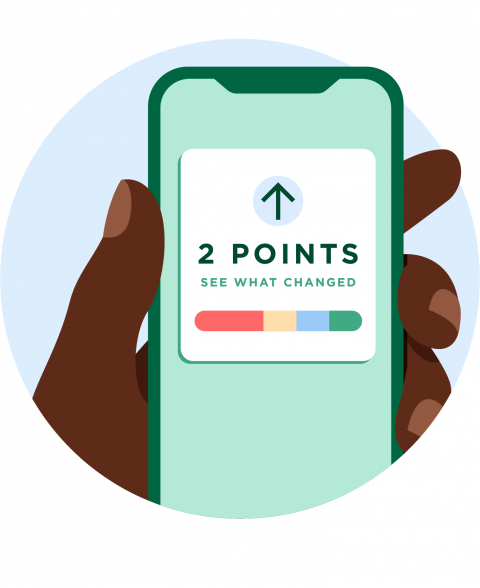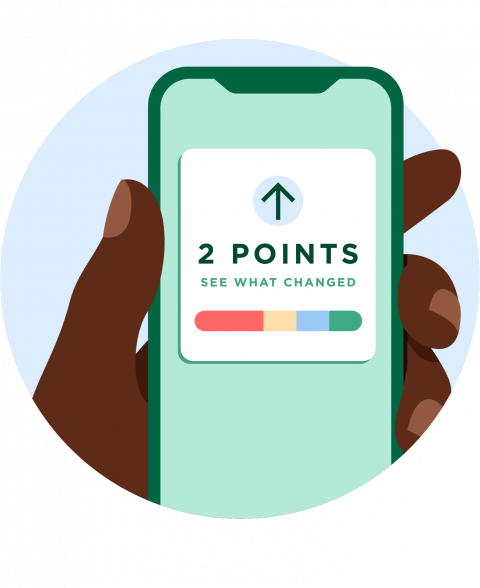What Is a Thin Credit File and How Can It Affect You?

Many or all of the products featured here are from our partners who compensate us. This influences which products we write about and where and how the product appears on a page. However, this does not influence our evaluations. Our opinions are our own. Here is a list of our partners and here's how we make money.
Not having enough accounts on your credit reports, known as a thin credit file, typically makes it more difficult to get a mortgage, car loan or additional credit cards. Making a plan to add more credit over time will thicken your credit file and help make you more attractive to creditors.
What does it mean to have a thin credit file?
A thin credit file is one that has too few accounts to create a full picture of your creditworthiness for potential lenders.
There are two kinds of thin credit files: The first kind doesn’t have enough credit report information to generate credit scores. The second type has enough information to generate scores, but it has only a few credit accounts.
Experts vary on the cutoff point between a thin and thick credit file. According to credit bureau Experian, credit reports with fewer than five accounts count as a thin file. But credit expert John Ulzheimer says you want at least four credit accounts and it’s best to have a mix of accounts, both credit cards and installment loans.
Who is most likely to have a thin credit file?
Just about everyone’s credit file is thin at some point because we’re not born with credit; we all have to build it. You are most likely to find yourself with a thin credit file if:
You are young or otherwise new to the credit world.
You've had credit for a while but have only a few credit accounts.
You recently immigrated to the U.S.
You avoid credit and handle your finances with cash or debit cards.
You had credit but stopped using it, so the information is too old to be scored.
You are newly single, and you had little or no credit in your own name while married.
How can having a limited credit file affect you?
The biggest problem with a thin credit file is lacking enough data in your credit reports to generate credit scores. Credit scores impact your life in major ways and affect such things as getting a cell phone, renting an apartment or buying a car or home.
Even after you have a credit score, a thin file may make it difficult to get approved for additional credit or may mean higher interest rates if you're approved.

How to thicken your credit file
If you have a decent credit score and an established credit history but just haven’t accumulated many accounts, you can add more to cross that threshold of four or five accounts.
Beefing up a thin credit file can be trickier for those with poor credit and a short credit history. Try using some of the typical tools for building credit:
Get a credit-builder loan
If you are just getting started with credit, a credit-builder loan may help. You’re not typically required to have a credit history or score to qualify, and monthly payments can be as little as $25. With this type of loan, you make all the payments first, then receive the money at the end, minus interest and administrative fees. Over the length of the loan, your payments are being reported to at least one of the three major credit bureaus, Equifax, Experian and TransUnion. If you consistently pay on time, you'll build your file and your desirability to creditors. Credit unions typically offer credit-builder loans, and so do some companies such as SeedFi, Self and Kikoff.
Open a secured credit card
A secured credit card can also help pad a thin file. You “secure” the card with a cash deposit, often starting at $200, and then it works like a traditional credit card. The amount of your security deposit is typically the credit limit, but there are exceptions. There are even some alternative unsecured cards that do not require a credit score for approval. Always verify that a card issuer will report your activity to the credit bureaus, so you know you're applying for a card that will build your file.
Become an authorized user or co-signer
Becoming an authorized user on someone else’s credit account can also help. The best scenario is to ask a loved one who has a credit card with a long history of being paid on time and that is lightly used (the balance is no more than 30% of the credit limit, and less is even better). You don't need to use the card as an authorized user in order to reap the benefit. Getting a co-signer can also help, but it’s a big request because the co-signer is completely on the hook if you don’t pay as agreed.
One caution: Before you apply for more than one credit product, ask if your application will involve a “hard inquiry,” because too many inquiries close together can make you look risky. It’s best to space applications out about six months. Many credit-builder products do not require a credit check; verify that before applying.
Can you have good credit and a thin credit file?
You can have a good — even excellent — credit score with a thin credit file. The key is to manage existing credit accounts by doing things like paying your bills on time and using no more than 30% of your credit.
Still, you might choose to build a thicker file because it can benefit your finances in many ways, including:
Better access to credit when you want or need it.
A higher total credit limit, which can build your score by helping to keep your credit utilization low. Extra available credit also helps when you need to cover an unexpected expense.
More options for credit card rewards and other benefits.

How can I use my credit score and report to manage my file?
Tracking your score and report can help you see your credit profile much the way lenders and card issuers will. Doing so provides good feedback as you work to build your credit score. You will also be able to see what a lender or card issuer is reporting, and when they report it.
Many personal finance websites offer free credit scores; look for one that also offers free credit report information. You can get a free credit report and VantageScore 3.0 credit score on NerdWallet, and both update weekly so you can track your progress.



